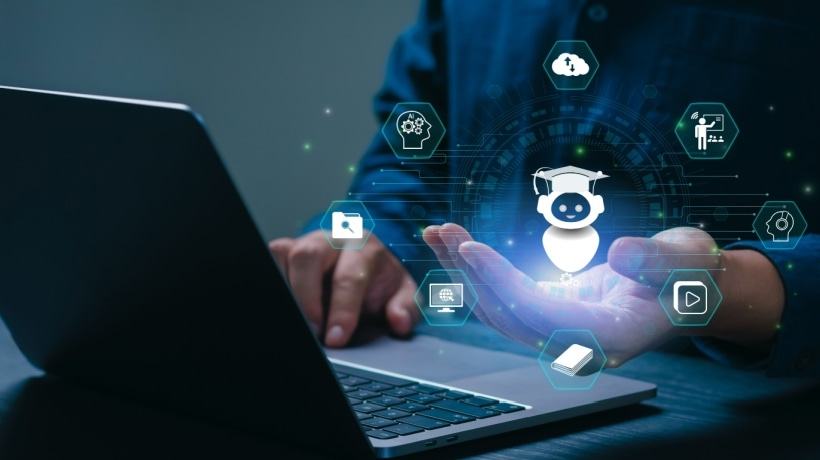Upskilling Through AI Promises A More Agile Future
The pace of technological change and digital transformation has made constant learning an imperative for employees and organizations seeking to remain competitive and adapt to emerging trends. As skills requirements evolve rapidly, companies that fail to adequately upskill and reskill their workforces risk falling behind, losing talent, and struggling operationally. Human resources (HR) leaders play a pivotal role in fostering cultures of learning and enabling employees at all levels to acquire new capabilities. Upskilling through AI-powered learning platforms is an innovative approach through which HR can provide targeted, personalized, and scalable training that upgrades workforce skills.
Assessing Upskilling And Reskilling Needs
The first step for HR in facilitating upskilling and reskilling is to conduct skills gap analyses to identify priority areas for capability building aligned with organizational objectives. AI algorithms can process employee performance data, job requirement changes, and projections of future trends to spotlight where skills deficiencies currently exist or are soon likely to emerge. For instance, if an enterprise aims to expand its digital product range or ramp up automation, related upskilling needs like software development, data analysis, Machine Learning, and creative design can be preemptively uncovered through AI-enabled audits. If customer messaging is a weakness, reskilling in written communications, emotional intelligence, storytelling, and customer experience may be prescribed.
Curating Targeted Learning Pathways
Once gaps are spotted, the next milestone is curating learning pathways tailored to employee groups or individual learners based on their baseline capabilities and aspirational skills. AI tutoring systems assess the present skills mastery of each worker through interactive assessments and then suggest appropriate content sequences while adapting to their evolving strengths and weaknesses.
For a sales associate seeking to upgrade their digital marketing know-how, the technology may assess their existing social media, email marketing, data analytics, and Search Engine Optimization proficiency before recommending a personalized step-by-step learning program on the topics. The content scope and depth are calibrated to build on the employee's current expertise so as not to overwhelm or bore them.
The crafted learning journeys feature bite-sized microlearning via presentations, videos, podcasts, gamified experiences, online mentoring circles, and more. Learners can progress through short bursts of 5- to 15-minute lessons between tasks, rather than disappearing for days of training, and knowledge retention improves thanks to varied multimedia formats. AI tutors also suggest fresh supplementary content to workers who breeze through certain subjects, ensuring continual progress and challenge rather than wasted time rehashing known information for everyone. Employees own personalized learning roadmaps based on both corporate essentials and their personal enrichment preferences, driving intrinsic motivation to upskill.
Monitoring And Optimizing Learning Effectiveness
Once workers embark on AI-orchestrated upskilling journeys, the technology tracks their participation, comprehension, skill gains, and setbacks through interactive questions, knowledge checks, workshops simulating real-world applications, and other channels. These provide ongoing feedback loops into learner advancement and stumbling blocks. If a particular module repeatedly confuses several groups of employees, AI will flag it for review and improvement by learning designers. If a worker struggles with a specific new capability like financial analysis despite multiple attempts, human mentors can step in for one-on-one coaching.
The platform also gauges skill transfer back to the job role by examining performance markers before and after training, providing definitive measures of learning Return On Investment. The AI subsequently optimizes recommendations to amplify outcomes and help leaders decide where to expand, tweak, or cut back certain upskilling initiatives in a data-backed fashion.
Democratizing Access To Upskilling
Historically, learning opportunities tended to be restricted to specific roles such as managers, high potentials, and white-collar jobs. But in light of widespread digital disruption and automation affecting technical, service, manual, administrative, and other blue-collar roles too, upskilling at scale across organizations is imperative.
AI learning platforms allow cost-effective, rapid reskilling of the broader employee base by lowering training costs. Intuitive tech delivers quick learner-driven sessions and reduces the need for dedicated in-person instructors. It also enables consistent globalized content delivery across dispersed workforces and flexible self-driven consumption by employees any time amid busy schedules.
Further, real-time skills benchmarking, personalized roadmaps combining human and digital instruction, plus bite-sized mobile content make previously impractical large-scale upskilling achievable. Employees beyond the C-suite can continuously rejuvenate their skills without hassle or cost barriers, helping businesses future-proof their workforces holistically.
Cultivating Continuous Learning Cultures
The biggest driver of successful organizational upskilling and reskilling is nurturing innately curious cultures celebrating growth, adaptability, and mastery as ongoing journeys without endings. People analytics again play a role by tracking metrics around participation, with knowledge-sharing and peer-coaching revealing employee learning behaviors and bottlenecks.
AI tutoring technology keeps building on recommendations for each worker, ensuring they always have fresh learning prompts and diverse content to explore when workloads permit. The system can also compile organization-wide skill profiles, flag knowledge gaps impeding next career steps, and auto-suggest training to aid talent mobility and succession planning.
Besides unlocking learning path personalization and curation efficiencies, AI empowers employees to drive their upskilling agenda. Workers receive nudges to undertake both necessary and supplemental training based on enterprise and individual needs, but they ultimately own their learning rather than passively swallowing top-down programs.
This culture shift is invaluable as employees seek purpose, growth, and empowerment. They will more readily adopt lifetime learning habits when supported by smart platforms offering frictionless, contextual recommendations versus bureaucratic once-a-year training mandates. Upskilled workforces become far more agile, sparking a virtuous cycle driving further learning advancement.
Key Takeaways
AI-underpinned learning systems are primed to transform corporate training by pinpointing precisely where skills gaps exist, guiding employees through the right training sequences using personalized roadmaps, optimizing content using robust feedback loops around learning outcomes, democratizing continuous upskilling globally across all workers, and most crucially, cultivating self-driven learning cultures for the long-term.
With LinkedIn Learning or Udacity-style on-demand platforms becoming commonplace, HR leaders have an invaluable opportunity to accelerate enterprise capabilities development through AI. The ultimate competitive edge will lie with organizations that implement the smartest tools while empowering their employees to chart their upskilling journeys on an ongoing basis.
The result, with workforces exhibiting sharp domain strengths yet intrinsically motivated to constantly expand them, will prove tough for any rival to replicate. When leveraged astutely, AI-powered lifelong learning ecosystems offer a key strategy for corporations seeking to gain advantage through skilled, adaptive, and deeply engaged talent.
Editor's Note: Visit our Learning Management System directory to find the best tool for your L&D program.









